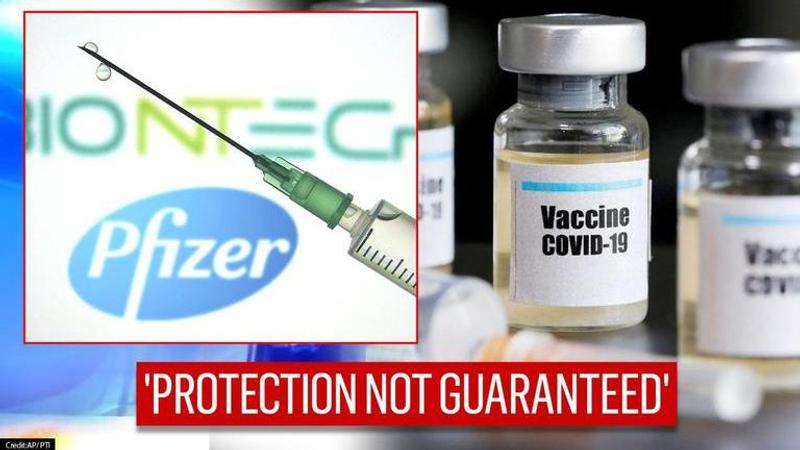Published 12:13 IST, January 5th 2021
BioNTech-Pfizer: No data to suggest COVID-19 vaccine will work if second shot is delayed
Pfizer, BioNTech have said that there is no data to suggest their COVID-19 vaccine will continue to generate an immune response if the second shot is delayed.

American pharmaceutical firm Pfizer and its German partner BioNTech have said that there is no data to suggest their COVID-19 vaccine will continue to generate an immune response if the second shot is delayed by more than 21 days. This comes after several countries have changed or are thinking to change their strategy of administering two-shot vaccines by giving the prime shot to as many people as they can before inoculating them with the booster shot, even if it means a delay of more than three weeks between each jab.
Pfizer and BioNTech in a joint statement on Monday said that there is no evidence to suggest their COVID-19 vaccine will continue to protect against the virus if the second shot is administered later than the 21-day schedule tested during the trial studies. The companies said that they have only tried one dosing schedule during the trial of the vaccine, adding that most of the participants received the booster shot before the deadline of 21 days. Pfizer and BioNTech added that there is no data at the moment to prove recipients will sustain the antibodies if the second shot is delayed by more than 3 weeks.
"The safety and efficacy of the vaccine have not been evaluated on different dosing schedules as the majority of trial participants received the second dose within the window specified in the study design. There is no data to demonstrate that protection after the first dose is sustained after 21 days," the companies said.
UK, Canada approves delay between shots
Last week, the United Kingdom changed its vaccine strategy after approving the two-shot AstraZeneca-Oxford vaccine. The UK government extended the window between the two shots and said that it will vaccinate as many people as it could before giving them the booster jab. Canada also adopted the strategy with Quebec saying it won't hold back doses for the booster shot. Germany and Denmark are also contemplating changing their immunization strategy.
Meanwhile, the United States government on Sunday hinted that it might also go for the same strategy adopted by the UK and Canada if the US Food and Drug Administration (FDA) approves it. Moncef Slaoui, the head of Operation Warp Speed, told CBS on Sunday that they may give the first of Moderna's two-dose vaccine to as many people as possible in order to speed up the vaccination process. However, the expert also warned against the move, saying his personal opinion is that it might be a mistake because it goes against the data.
Updated 12:11 IST, January 5th 2021




